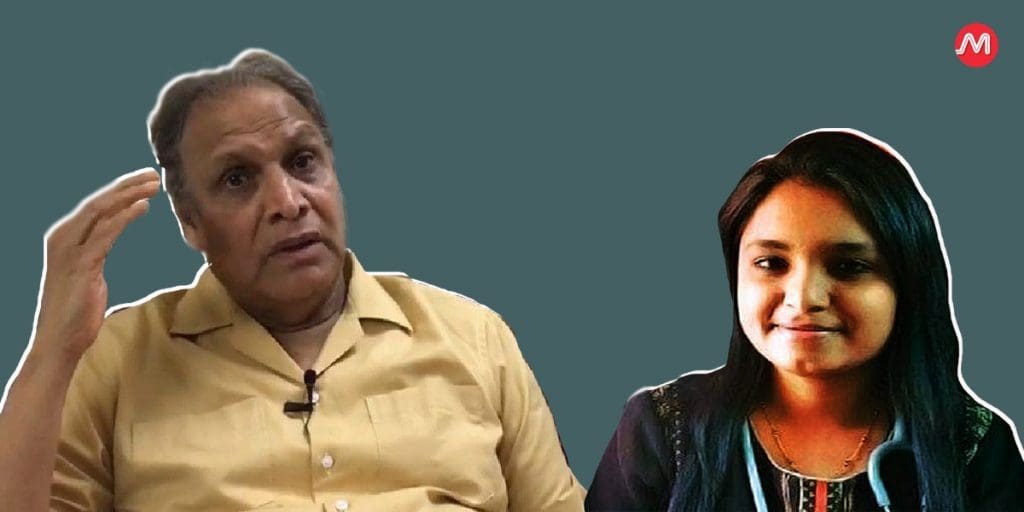
Two and half years before, in May 2019, Payal Tadvi, the first gynaecologist and first female student of Doctor of Medicine (MD) from Tadvi Bhil, a tribal Muslim community, took her life due to casteist harassment from her senior colleagues who belong to upper caste communities.
The incident soon became a symbol of caste-based discrimination in higher education for Dalit and tribal students who continues to experience such harassment due to their social background.
Post the incident, Payal Tadvi’s case hasn’t moved much in the direction of justice. Instead, it has been strangled amidst the larger casteist-brahminical proceedings leaving little hope for justice to Tadvi and hundreds of others like her.
On Tuesday, a collective of four organizations released a report enquiring into caste-based discrimination in medical education. The report brought after the institutional murder of Dr Payal Tadvi was released in a two-hour-long panel discussion.
The programme titled, “The Steady Drumbeat of Institutional Casteism: Recognize Respond Regress” was conducted by medical and human rights organizations including Medico Friend Circle, Forum for Medical Ethics Society, Forum Against the Oppression of Women and People’s Union for civil liberties, Maharashtra.
The discussion was started quoting Dr B.R.Ambedkar, “Turn in any direction you like, caste is the monster that crosses your path.”
The report released is a “study of several suicides amongst medical aspirants”. It traces caste-based discrimination through “the lifecycle of medical students, beginning from admission to the social exclusion in campus life, hostels and workspaces”, informed Sujatha Gothoskar, co-ordinator of the event.
She also pointed out to privatization in medical education to have aggravated caste-based discrimination, as it discredits the role of reservation in education. She also informed the audience a Marathi and Hindi version of this report will come in the following days.
The former chairman of the University Grants Commission, professor Sukhadeo Thorat was one of the panellists in the event. Thorat committee headed by the professor was one of the earliest reports on caste-based differential treatment against students getting admitted via reservation process.
While his reports were submitted in 2007, it was not taken seriously, ‘but over the years, with frequent institutional murders, the myth of educated people to be immune to casteism has started to being dismissed,” Thorat says.
However, similar to how ragging is criminalised, a special legislation to criminalize caste-based discrimination, is necessary. But to do away with covert caste-based discrimination, a social reformation is a must, observes Thorat.
Payal’s Husband, Dr Salman Tadvi, Assistant Professor of Anesthesiology, recollected Payal’s academic journey and the troubles she underwent.
“Payal and her mother kept complaining from lecturers to the college dean. But complaints both verbal and written were kept aside and actions were never taken,” Salman says.
While Maharashtra Medical Council licenses of Ankita Khandelwal, Hema Ahuja, Bhakti Mehare – Payal’s roommates and accused of her death, were first suspended, later it was revoked due to the Supreme Court’s intervention.
“As per SC/ST atrocities act the case should’ve got resolved in six months, but Payal’s case is not resolved even after two years”, said Salman.
Dr Sanjay Dabhade, a member of the Tribal Doctors’ Forum, also spoke about the conditions from which tribal medical students emerge and hinted at the needed reforms.
Dr Sylvia Karpagam, a public health doctor, said that more attention is needed to understand covert casteism practised in campus and hostel spaces where Brahminical culture has been force-fed as a virtue.
“In general, the medical community falls behind in resisting or questioning discrimination,” added Karpagam.
Elaborating on victims’ incapability to comprehend and articulate the strange and complex ways in which caste-based discrimination works, the Supreme Court advocate Disha emphasised the need for an aiding mechanism for marginal community students.
Watch the full discussion:



